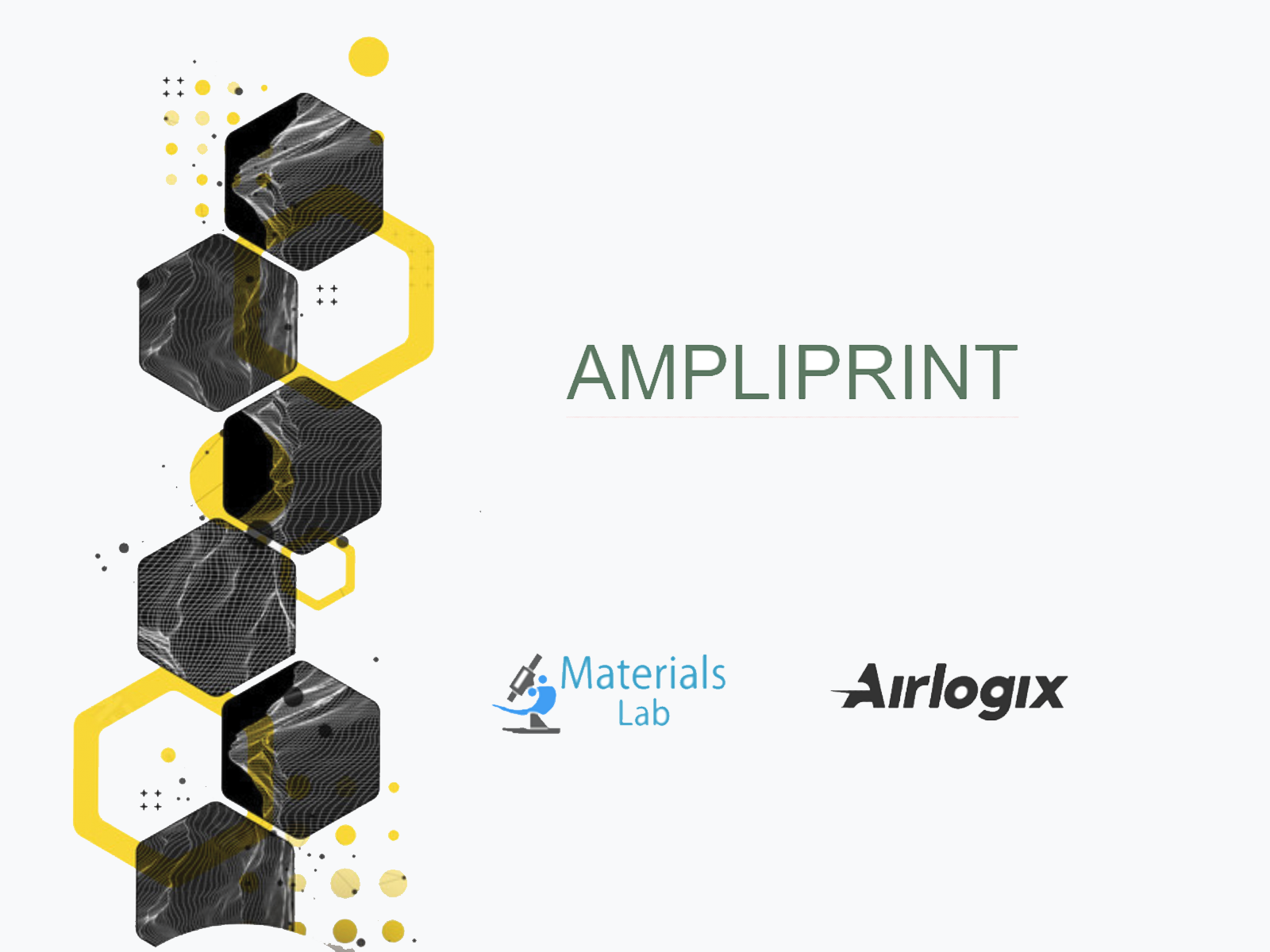

Ampli Print — developing a novel Composite filaments for 3D printing.
Materials Lab, a production and research company, in cooperation with the Institute of material science will provide and improve the developed technology for production of polymer ceramic composites and filaments, while Global Dynamic will use these new high durability materials to produce drones under the Airlogix trademark. Co-operation between science, experimental lab and the end-user of the material increases the efficiency of the development process, saves time and ensures the best result. Drones are now used in many fields from crime scenes examination, border control to events filming, cargo delivery and many more. While being a highly prospective market, it also faces challenges: weight and durability of details, energy consumption and price. We improve a technology to produce composite polymer filaments, reinforced with basalt fibers (15-20 vol. %). By adjusting the level of reinforcement, we can create material with various properties to adjust with the specific requirements of our customers. Our polimer-basalt materials will be competitive in price with PLA filaments and combine all the advantages of ceramic and fibrous filaments. This technology can be used to produce various types of products based on the customer needs. Global Dynamics as a customer insisted that the new material should be lightweight, durable and suitable for 3D printing. And they got it. We replace energy intense carbon fiber with basalt to reinforce polymer-ceramic materials and make the whole process green and eco-friendly. In the production of basalt fiber, natural materials are used which minimizes the harmful impact on the environment. Since the requirements for cost and mechanical quality of parts do not differ much across manufactures, it’ll ensure further vertical and horizontal scalability. Our team members complement each other in the scientific, engineering and market expertise, having worked together for 15 years. Ostap Zgalat-Lozynskyy is our scientific lead, Doctor of Sciences at the Institute for Problems of Materials Science of the National Academy of Sciences of Ukraine.
Kyiv Academic University (KAU) is as a research-focused university within the National Academy of Sciences of Ukraine (NASU) and operates under the auspices of the Ministry of Education and Science of Ukraine. KAU's primary organizational components consist of departments affiliated with NASU Institutes and various research centers. Students at KAU have direct access to Ukrainian scientific programs, engage in collaborations with Ukrainian researchers, and undertake projects centered around advanced technology innovations using the outcomes of their research and development endeavors. KAU is also proactive in fostering international scientific partnerships, with its academic staff actively involved in collaborative ventures with institutions such as Dresden, Lille, Iowa universities, and participation in HORIZON projects.
A prominent unit within KAU is its Innovation Center, where both undergraduate and graduate students gain hands-on experience in elevating their research to an innovative level. In 2021, the KAU Innovation Center initiated a comprehensive program aimed at supporting academic innovation. The Innovation Center at KAU serves as a nexus for 13 Scientific Research Institutes under NASU, involving more than 400 students from KAU and other esteemed universities in Kyiv. This collective effort is oriented toward establishing a science park known as "Academ.City." The Academ.City initiative garners support from the NAS of Ukraine, the Kyiv state administration, and the science park Adlershof in Germany. It also maintains strong ties with local business associations, prominent Ukrainian corporations (such as the leading local pharmaceutical company Farmak), and key players in the innovation ecosystem, including local incubators, accelerators, and venture capital firms.